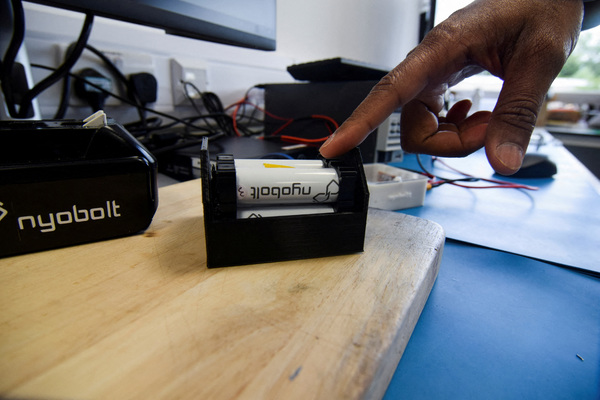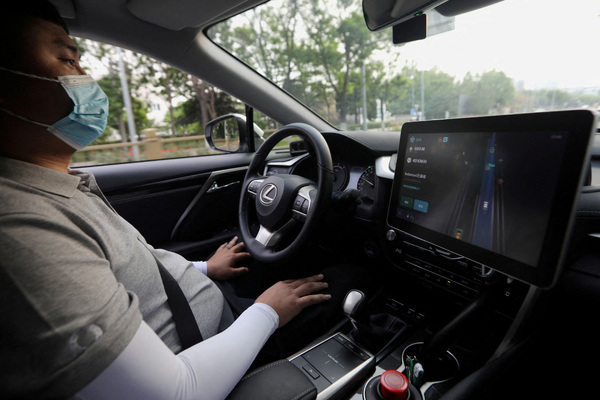Top principles for smarter cities
Sponsored by EUROCITIES
by Anna Lisa Boni, Secretary General, EUROCITIES The effects of digital transformation are already all around us in our everyday lives, and cities are embracing the benefits. New technologies and online tools allow us to introduce e-governance, improve public services and reduce carbon emissions to create more liveable and sustainable cities. Yet, as we embrace ever smarter cities, we need to be increasingly aware of how we use, manage and store data, and to keep in mind that at the heart of any smart city lies its citizens. Without a doubt, data should be regarded as the backbone of the smarter cities revolution. It is only by harnessing its potential that we can reveal patterns and behaviours that can inform better policy making. As authorities dedicated to the public interest, cities want to use data in a socially responsible way. This comes with obvious risks and tensions, however. Principle among these is ensuring that citizens’ data is anonymised and not traceable to an individual. Another top priority means that people should have access to use, manage and control any datasets that they generate and are then used by others.
City-led, citizen-focused
At EUROCITIES, the network of major European cities, we’ve done a lot of work this year with pioneering cities such as Edinburgh, Ghent and Zaragoza to create a set of 10 principles on the responsible use of citizens’ data. Citizens’ data includes both personal and non-personal data, which can be aggregated and anonymised to maintain personal privacy. Our principles recognise that data generated by citizens in this way is a valuable public asset and offer a set of guidelines for local administrations to try to manage these data better and put them into practice in their smart city projects. This includes putting in mechanisms and practices to give people better control over their data. Many cities, including several EUROCITIES member cities, are already going above and beyond in this area. Citizen data can be used to have a real public value, generating benefits for citizens and society as a whole. Bordeaux is monitoring tourist behaviour in its metropolitan area by analysing social media data from, for example, TripAdvisor, Instagram and Flickr, where tourists leave a digital trace through photographs and posts. Once anonymously processed and analysed, this data reveals the area’s attractiveness and enables the development of cultural and nightlife activities tailored to tourist interests and needs. This data also allows for the development of public policies and investments in culture and tourism. The city of Eindhoven is working with an electric car sharing firm to gain access to the company’s data on the use of shared cars within the city. From this anonymised data, Eindhoven will learn about the number of vehicles involved, timeframes and the areas of greatest use. This agreement enables Eindhoven to analyse how shared mobility solutions are developing, where electrical charging stations and parking facilities are needed and where mobility innovations are lacking. This allows the city to improve smart mobility hubs to stimulate the use of shared cars. Barcelona has worked with students between 14 and 16 years old to analyse data available through the Barcelona open data website, to develop apps using open-source programmes, as well as visual and graphic representations of their findings. The students’ findings are being used by local politicians as well as developers to create new apps and take new decisions to improve services for a more liveable and sustainable city. Disruptive technologies such as the IoT and AI also have an important role to play in unlocking the potential of local administrations to offer better public services. However, rather than focusing only on the data produced, we advocate for interoperable platforms, preferably built with open source technologies, that make it easier for more actors, especially local actors, to get in on the game. The Decode project, which is being piloted in Amsterdam and Barcelona, aims to give back control of data to citizens. Its open-source tools respect privacy and rights, and are decentralised so that people retain their personal data in a wallet but anonymised data is available for use by innovators, start-ups, NGOs, cooperatives and local communities to build apps and services that respond to their needs and those of the wider community. We hope that EUROCITIES’ data principles will serve not only as inspiration for other cities, but also for companies involved in developing smart city solutions and perhaps even for a European-level framework. The potential of a well-managed digital transformation, where we handle people’s data in a responsible way and for the benefit of all, can have a long-lasting impact on the ability of cities to drive economic and social development, without negatively affecting our environment. With cities leading the way, a smarter future is in sight.
EUROCITIES is the political platform for major European cities. We network the local governments of over 140 of Europe’s largest cities and more than 40 partner cities that between them govern some 130 million citizens across 39 countries. For more information, click here. Related articles What’s next?

Business Reporter Team
Most Viewed
Winston House, 3rd Floor, Units 306-309, 2-4 Dollis Park, London, N3 1HF
23-29 Hendon Lane, London, N3 1RT
020 8349 4363
© 2025, Lyonsdown Limited. Business Reporter® is a registered trademark of Lyonsdown Ltd. VAT registration number: 830519543





